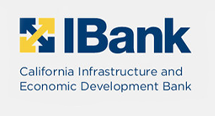SANTA ANA, Calif. – The Small Business Development Corporation of Orange County has received certification by the California Department of Insurance to function as a Community Development Financial Institution (CDFI), a designation that allows the nonprofit to help small businesses, housing developers, social service organizations, economically disadvantaged communities and low-income individuals obtain access to capital.
The California Organized Investment Network (COIN), which operates under the California Department of Insurance, awarded the certification following the state’s extensive application process. COIN is a collaborative effort between the California Department of Insurance, the insurance industry, community affordable housing and economic development organizations and community advocates
COIN was established in 1996 at the request of the insurance industry as an alternative to state legislation that would have required insurance companies to invest in underserved communities, like the federal Community Reinvestment Act that applies to the banking industry. This voluntary program facilitates insurance industry investments that benefit California's environment and its low-to-moderate income and rural communities.
“This certification provides our corporation access to mainstream institutional capital resources which allows us in turn to provide capital investment funds to small business owners and other organizations as well as individuals, in particular within communities of greater need,” said Michael A. Ocasio, president and chief executive officer of the Small Business Development Corporation of Orange County. “The ability to provide such financial assistance to those whose endeavors enhance their communities fits within our corporation’s broader vision.”
There are currently 51 COIN certified CDFIs around the state of California. Their objective is to provide financing to support businesses and jobs growth, improve access to housing, schools, and healthcare, and other programs that bolster disadvantaged communities. They also support renewable energy projects, and provide mortgages for low-income homebuyers as well as secure, affordable banking services for people who don’t have bank accounts. In addition, they offer credit counseling and training in personal finance and business planning, the investment network states.
Community Development Financial Institutions have the ability to issue or award state tax credits to life, property and casualty insurance carriers based upon the carrier’s investment capital placed with the CDFI organization. Ultimately, this capital is reinvested by the CDFI benefiting communities of greater need. The tax credit investment program is administered by COIN whose mission is “to match entrepreneurs, non-profit groups, and local governments either directly or through intermediaries with insurance industry investment capital” toward aiding low-income and rural communities.
According to the investment network, between 1997 and 2015, the COIN CDFI tax credit program generated more than $285 million in community development investments. Funding for an extension of the program in 2017-18 is under current review by the State Legislature.
Further information about the California Organized Investment Network is available here: http://www.insurance.ca.gov/0250-insurers/0700-coin/05-About-Us/upload/COIN-Brochure-7-26-16-Ver-J_nospreads-online-v-FINAL.pdf
ABOUT SMALL BUSINESS DEVELOPMENT CORPORATION OF ORANGE COUNTY
SBDC of Orange County (http://sbfdoc.org) is a quasi-public/private 501(c)(3) not-for-profit public benefit corporation, which operates under the state’s public municipal bank, The California Infrastructure and Economic Development Bank (iBank). SBDC of Orange County is not affiliated with the U.S. Small Business Administration.
The corporation, established in 2001, is a mission driven organization dedicated to assisting small business owners secure operating capital through its capital access programs including California’s State Loan Guarantee Program, Export Lines of Credit, bond conduit and Green Energy Initiatives to support small business access to credit.







